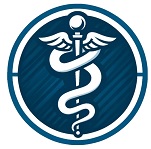Biology is one of the primary subjects to focus on when taking the MCAT, since this test measures your understanding of organ systems found within human bodies as well as related concepts like chemistry and physics.
Varsity Tutors’ free full-length MCAT Practice Tests can help assess your readiness for test day. With questions based on real biology passages and detailed explanations of every question, these mock exams offer invaluable practice before test day arrives.
Cell Biology
Hard to imagine, we’re made up of cells – over 75 trillion cells make up every person alive! Cell biology is the study of these micro-units and how they function to form organisms and tissues.
One important element of this field is studying how cells use energy for metabolism, an essential factor in living things’ growth and adaption to their environments. Another aspect is gene transfer research – particularly prokaryotic cells’ capacity to uptake extragenomic DNA plasmids from their environment as well as horizontal gene transfer among bacteria species through transposable elements.
Molecular Biology
Not surprisingly, biology is one of the highest-weighted sections on the MCAT exam. The Biological and Biochemical Foundations of Living Systems section tests topics related to cell/molecular biology, classical genetics, lab techniques, study designs and statistical reasoning.
Explore the structural and functional complexities of proteins. Discover how amino acids combine to form protein structures, how structure affects stability, and how enzymes use complex processes to catalyze significant biological reactions.
Discover the central dogma of molecular biology; uncover how DNA copies itself semi-conservatively using Okazaki fragments and specific enzymes; examine how gene expression differs among prokaryotic organisms and eukaryotic organisms; as well as learn about how physicists Watson and Crick developed an important scientific alliance that brought together their various approaches to studying the structure of DNA’s double helix.
Genetics
Genetics is the study of biological inheritance, first introduced by Gregor Mendel in the nineteenth century. MCAT questions frequently focus on Mendelian genetics, chromosomes, patterns of inheritance and key concepts related to law of independent assortment and phenotype-genotype correlations.
The MCAT Biology section tests your knowledge in areas such as cellular and molecular biology, classical and molecular genetics, laboratory techniques, study design and data-based reasoning as well as graph interpretation. You’ll also be tested on your ability to interpret graphs figures and tables. This guide can assist you in mastering these topics using effective study strategies that have enabled many past test takers to achieve high scores on this test section.
Biochemistry
Biochemistry can be a complex subject. To prepare, the best strategy for success is creating a schedule for reviewing topics and taking sample questions. This will enable you to keep tabs on your progress while preventing you from forgetting key concepts when moving onto new topics.
MCAT Biochemistry questions test your knowledge of chemical and biochemical processes occurring within living systems, such as citric acid cycle, oxidative phosphorylation and amino acid biosynthesis.
As part of your understanding, it is also beneficial to gain an in-depth knowledge of carbohydrates – including their structures and properties, nomenclature and classification – as well as lipids (triglycerides and waxes) and their structure/function relationships. Furthermore, familiarizing yourself with amino acid noun codes (1 letter code/3 letter code etc), structural properties as well as one letter codes is necessary.
Physiology
Physiology is the branch of biology that investigates how living organisms function. Although often confused with anatomy, there are clear distinctions between the two topics – such as anatomy’s focus on structures and functions while physiology adopts more system-oriented strategies.
On the MCAT’s biology and biochemistry section, candidates will encounter reading passages and questions that test their knowledge across a broad spectrum of biological topics. Questions often include descriptions of experiments or studies and require analysis of data presented there. Accuracy in both understanding and analyzing biological information is paramount to scoring well on this section; comprehensive content review is key here as is developing strategies such as process of elimination and identifying question patterns to maximize performance during preparation for this test.
